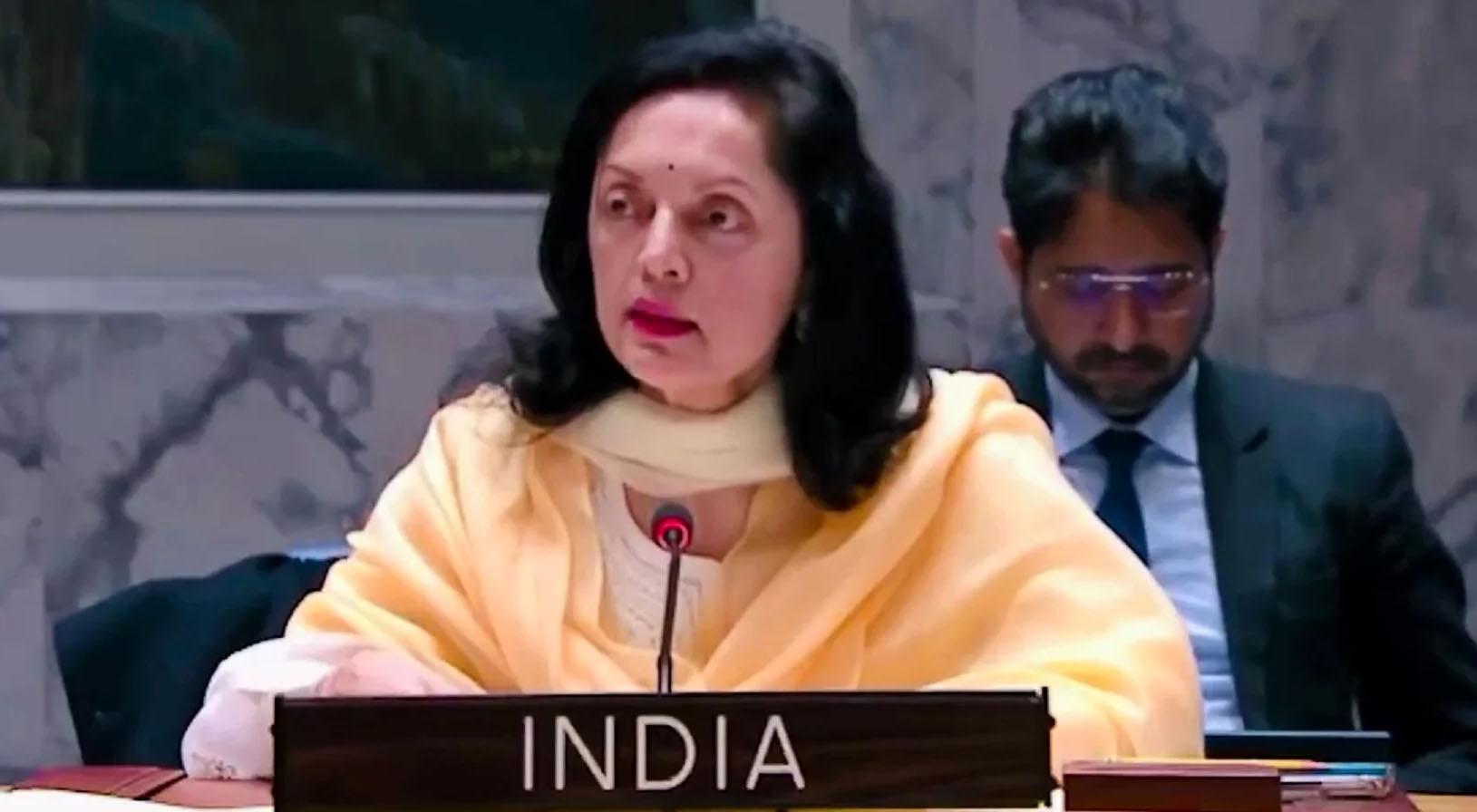United Nations, March 1: India has voiced concern over the spread of terrorism particularly in regions of Africa and Asia, and asserted that those States which provide shelter to terrorists should be called out and held accountable for their deeds, in a veiled reference to Pakistan.
“The threat of terrorism is serious and real. Regrettably, despite best efforts aimed towards transnational cooperation, it continues to spread, particularly in the regions of Africa and Asia,” India’s Permanent Representative to the UN Ruchira Kamboj said.
In her remarks to the United Nations Office of Counter-Terrorism Ambassadorial-level Quarterly Briefing to Member States on Tuesday, Kamboj said the threat of terrorism can only be tackled through consistent and unified multilateral action, by the international community.
“Those States which lack capacities to tackle the threat of terrorism, should be assisted, while those which provide shelter to terrorists should be called out and held accountable for their deeds,” she said, making a thinly-veiled reference to Pakistan.
Noting the spread of terrorism as a “worrying” trend that needs urgent reversal, Kamboj underlined the need to keep divisive narratives at bay.
“We should accordingly refrain from the classification of terrorism. The usage of terms such as ‘right wing’ or ‘left wing’ or ‘far right’ or ‘far left’ are fraught with the misuse of them by vested interests,” she said.
She stressed that it is important that the Global Counter-Terrorism Strategy should continue to enjoy the support of all member states. Noting that the current Review Resolution adopted in 2021 is relevant and balanced, she said the upcoming Review should be a technical update of this Resolution, taking into account the activities and achievements of the United Nations and other important fora.
Further, she underscored the importance of protecting the secular nature of the Global Counter-Terrorism Strategy.
“India strongly condemns all kinds of terrorist attacks irrespective of religion, belief, culture, race or ethnicity. In the same vein, we also condemn terrorist attacks motivated by Islamophobia, Christianophobia, anti-Semitism, anti-Sikh, anti-Buddhist, anti-Hindu prejudices,” she said.
The 7th Review took into account the first three kinds of attacks while failing to address the rest, Kamboj said, adding that a more sagacious approach would be to keep this reference broad, abandoning thereby a list-based approach in the upcoming Review.
India also highlighted the need for the international community to exert energy on addressing more serious issues such as the growing threat of terror financing, which has been further exacerbated by the use of new and emerging technologies by Terrorists and Terrorist Groups.
India had hosted the 3rd ‘No Money for Terror’ Conference in November 2022 and had offered to host the Permanent Secretariat for the Conference in Delhi, as one of the concrete outcomes of that event.
In October 2022, India, as Chair, had hosted the Special meeting of the Counter Terrorism Committee, which had adopted the Delhi Declaration on countering the use of new and emerging technologies, highlighting not only the threat, but paving the way for a futuristic road-map for the CTC to help member states address this threat holistically.
Kamboj said India has never hesitated from “walking the talk” in the effort to fight back the terrorist scourge.
In recent years, India has contributed more than USD 2 million to the UN Office of Counter Terrorism in support of its global programmes to counter financing of terrorism as well as stemming terrorists’ travels. “Going forward, we also reiterate our support to provide more financial resources to UNOCT from the regular UN budget,” she said.
Citing Prime Minister Narendra Modi, who has said “even a single act of terrorism is one too many, even a single life lost is one too many”, Kamboj said with this conviction, India is committed to eradicating terrorism entirely and will not rest until this goal is achieved. (Agencies)
Trending Now
E-Paper


